There was a time when you said the above word when you doubted the veracity of the statement or question you were confronted with. That was before the Modern Family cast entered your living room and your pizza and beer laden brain. Nowadays, it could mean anything from, 'you are kidding me!', to 'No, you don't mean that', to 'Why is this happening to me?' to 'Oh, come on now' and a wide range of other emotions and expressions. I am not knocking a sitcom lingo wriggling its way into the everyday vocabulary of its audience, Seinfeld did it with 'yada, yada'. But that was a new word, wasn't it? Somehow, "seriously" doesn't have the same appeal. You just take an existing word and cram it with all kinds of meanings till dies a violent death, groaning under the weight of all the meanings it was not supposed to carry, probably blurting out weakly before breathing its last:' I couldn't take it. Seriously.' It's force-feeding, that's what it is, a foie gras (wtd?) of words. Interestingly, I've only observed the fairer sex displaying the symptoms of this, shall we say, 'seriousitis'? Hope it's a passing fad, in all seriousness.
|
There was a time when you said the above word when you doubted the veracity of the statement or question you were confronted with. That was before the Modern Family cast entered your living room and your pizza and beer laden brain. Nowadays, it could mean anything from, 'you are kidding me!', to 'No, you don't mean that', to 'Why is this happening to me?' to 'Oh, come on now' and a wide range of other emotions and expressions. I am not knocking a sitcom lingo wriggling its way into the everyday vocabulary of its audience, Seinfeld did it with 'yada, yada'. But that was a new word, wasn't it? Somehow, "seriously" doesn't have the same appeal. You just take an existing word and cram it with all kinds of meanings till dies a violent death, groaning under the weight of all the meanings it was not supposed to carry, probably blurting out weakly before breathing its last:' I couldn't take it. Seriously.' It's force-feeding, that's what it is, a foie gras (wtd?) of words. Interestingly, I've only observed the fairer sex displaying the symptoms of this, shall we say, 'seriousitis'? Hope it's a passing fad, in all seriousness. I purchased a kindle book the other day titled 'Dancing beyond thought'. It's a collection of verses from the Gita and the author's sincere belief is that one can take any of these verses and make chanting that a daily ritual. It's transliterated with English pronunciations along with the verses. Speaking of a verse that resonates, I always felt drawn to the instruction to 'do your duty without expecting results' (karmanye vadikharaste ...').
It allows you to focus your mind on what's at hand, not a distant victory whether it's the money that's going to be in your account or an award that you may or may not get someday. Since it un-clutters your mind, you can concentrate on the task at hand. It absolves you of the result, good or bad bestowing upon you a sense of peace and calm settle in you as you go about doing your duty, whatever that maybe. There's a similar story in a Zen koan. An impatient student keen on learning kendo, a Japanese martial art(way of the Sword), approaches the sensei and asks him to teach the art of kendo. The master says it will take ten years. The student, appalled, says, 'But master, I have to learn it in five years'. 'Oh?' says the master, 'in that case, it will take twenty years'. The lesson is: focus on what you have to do and the rest will take care of itself. In the case of the student, effort and single-minded attention would have ensured that he became adept at the art in ten years or less, but with his mind on the result, it was obviously going be delayed. The more impatient you are, the longer it will take. Which somehow ties back to Stephen King's 'writers write' piece of advice. It doesn't matter if your book is published or not; whether you have a million readers or five. All that matters is that you sit at the computer and write. Because, like he says: “Writing isn't about making money, getting famous, getting dates, getting laid, or making friends. In the end, it's about enriching the lives of those who will read your work, and enriching your own life, as well. It's about getting up, getting well, and getting over. Getting happy, okay? Getting happy.” It doesn't have to be stories all the time. You can take a break between your novels and story writing schedule by writing blogs. Even if you write a bestseller, what next? Are you going to stop? Is that the best you got, to quote Ali (apparently that was how he taunted his opponents in the ring)? Not all bestsellers are great. Again, going back to King, he hates Snowfall in the cedar type stories; Tom Robbins loathes 'Fifty shades of grey'. So to write a decent book, you have to keep writing, and if you make it to the bestseller list, great, but that's just the beginning. As they said when I was learning Aikido very briefly, 'a black belt is not the end, it's the beginning'. I almost always get drawn in by the first line of a book before buying it, and Marquez’ masterpiece was one such book I was lured into by the opening lines. There is something melancholic, beautiful, engaging, mysterious and irresistible about those first few lines. I had attempted reading him earlier, about ten years ago, but I landed on the wrong book, the Autumn of the Patriarch, which, if I remember right, did not have full stops for pages on end. All authors have their entry point books I think, (for instance, if you want to start off with Murakami don’t let Kafka on the Shore be your first as it was with me before I rediscovered him through Norwegian Woods)and luckily I revisited Marquez at Borders and got off to a wonderful journey that started with ten dollars. From then on I bought almost all his books and fell in love with his writing, even though he wrote in Spanish. That’s another inexplicable quality about his stories, you don’t feel like you are reading a translated piece of work, and the credit for that goes largely to Gregory Rabassa who erected a transparent (or diaphanous, as Marquez would have said) veil between the two languages to make sure you didn’t lose much in the process. And I learnt today that magical realism dies at age 87. RIP GGM. There will be one hundred years of platitude for your works, I'm sure.
All right, let's see how this works. After trying facebook ads, Adwords and Bing and dabbling with Goodreads, I just started a Pay with a tweet campaign today. You can download a sample of my short story collection Ten Twisted Tales to get an idea of what the stories are about, the style of writing, etc, and should you be so (hopefully) inclined to purchase, you can do so on this site. There are five stories in the PDF. You can click the link on the right or on the welcome page or the Ten Twisted Tales page. But now that you are here, why don't you click the button and help spread the word? Thank you.
Saw this in Japan Times last week, right after the Bridge defeat. And it is getting worse, fittingly. Ho hum.
I was listening to a rendition of an excellent song written by the fiery Indian freedom fighter poet Bharathiyar the other day. It was a fusion number and sounded quite fine till the girls started singing. They were mispronouncing all the words that had ‘s’ with ‘sh’ (Aasai was Aashai and Nesam was Nesham). This ruined the whole song and the experience for me.
I mean if you are Sean Connery, I can undershtand you shaying thingsh like that but these were singers from the south (shingers from the shouth?). Even if you were not from South India, wouldn’t you learn to get the pronunciation right, no matter which language you were singing in? Can you get away with singing a popular English song on stage, mispronouncing all the words, saying shit for sit, shelf-control instead of self-control? How about the other way round, replacing 's' for 'sh'? Is that ok? Best wisses anyone? Nuclear fisson? I doubt that. Thing is, the very same people would go to great lengths to learn how to pronounce a foreign word, and mock you if you got it wrong. “It’s not Agnes B, it’s Anya Bay”, or “crosson’ not croissant”, they would say and still get sambar wrong. People who are from the North and West (and East I’ sure), always make it sound like you are eating idlis with a deer. That’s want sambar is (prounouced saambur). It’s an easy word to say, saam followed by baar. But no, we don’t mind butchering an Indian language as long as we get LanVin right. Studying in Tamil medium until 10th standard, I used to be in awe of students from English medium classes when they rattled off in that foreign language so fluently. It was fascinating to hear the words roll off their tongues in an incomprehensible cadence. Incomprehensible because it made no sense at all to me. It was the speed with which the words tumbled off that was impressive.
It was then I decided that I would one day learn to speak English as fluently and effortlessly as these gifted students. And fast, of course faster. Much faster. Because I was led to believe that the faster you spoke, the better you were at it, and if clarity was compromised, so be it. This unwritten rule was lauded every time a relative, a friend or a famous personality was caught spewing torrents of words in English. For instance, people used to narrate the example of a famous politician from Tamil Nadu who went to the US and asked a random guy for 'Ten ton tin', and they were extremely impressed when the newspaper (allegedly) reported that the American dude did not understand a word of what the politician said (even though there were just three, if you think about it). A similar sort of veneration to speed over clarity was extended to a quiz guy on TV. Even though no one had a clue to what he was rattling off, they were suitably impressed all the same (reminds me of Catch 22 line, 'If you can't dazzle them with brilliance, baffle them with bullshit). This made me wonder: Why would you go to a foreign country and speak the native language so fast that even three words were hard to understand? If confusing the other guy was the agenda, then he might as well have spoken in Swahili (the guy might have understood him, probably), I felt. Isn't the point of communication clarity? That when I say something, you understand what I'm saying? Apparently not. Which brings me to Japan. I've been there quite a few times over the years, and my wife and I get by beautifully with a point and speak book. It's a wonderful little book that has pictures of food, vegetables, buses and trains,beverages and dishes, names of cities and destination. And the descriptions are in Japanese and English so we are on the same page, so to speak. If I want to go to a particular place, I point to the page that says, 'Please take me to ...' and fill in the blank orally and he takes me there. I order food by pointing to the pictures. I can 'talk' to anyone. They don't know English and I don't know Japanese. It works brilliantly. And it does away with not only speed, but whole sentences. I say 'no fish, no meat', they scratch their heads and say, 'shrimpu?' I say no, they say 'gomennasai' and I walk to the next shop. Simple. The way it should be, eh? Many years ago I saw this song when I was back home, surprised to see Dylan and Michael Douglas and the other dudes in it. It isn't often you see a Dylan video, much less a video with him and some Hollywood dudes.
That aside, this song gets under your skin for some reason. It's that way with most of Dylan's numbers. Sometimes it's just a few phrases here and there that make a lot of sense, and sort of defy time, like: "I used to care but things have changed" "People are crazy and times have changed" I've been trying to get as far away from myself as I can" "You can't win with a losing hand" "All the truth in the world adds up to one big lie" And how he pauses at 'it' in eternity to rhyme with the other 'it's in the preceding lines. “I don’t think people die, they just go to department stores”. As I went around the exhibition halls at the Mori Art Museum in the confusingly sprawling Roppongi Hills, Tokyo, featuring the creative output of the 15-minute man, I wondered where Andy Warhol would be without Campbell soup cans and screen-printing? Really. You take away those two from him, and it’s like taking away the cape and the weird-arm flying posture from Superman. They’re just not the same without their trademark symbols.
Most of his work featured Campbell cans and celebrity images souped up (ha!) with screen-printing technology. Apparently, he would copy a picture from a pop art magazine over and over using screen-printing, paste them on a canvas and put them up. The exhibit had a section with his time capsules containing several of his everyday collections of things like magazines, doctor’s prescriptions, scrap papers and such. The walls were printed with some of his sayings which were quite interesting. Here are a few: “I never wanted to be a painter, I’ve always wanted to be a tap dancer instead.” “I think everyone should be a machine” “I had a job looking through fashion magazines in a department store at fifty cents an hour to look for ideas. I don’t ever remember finding one or getting one.” “I used to work for these magazines, I thought I was being original and they wouldn’t want it, that’s’ when I stopped being imaginative.” “My instinct says if I don’t think about it, it’s right. As soon as you have to decide and choose, it’s wrong.” “I don’t think people die, they just go to department stores”. And there were times when he was literally taking the piss. He used to urinate on canvas with a copper based paint and the resulting p(ee)aintings were sold as oxidation artworks. You should read the critics gushing about it. One compares it to the ancient art of alchemy and says Warhol alchemically was converting his own urine into art. It’s amazing what you can do when you have more than 15 minutes of fame and to what groveling lengths your critics would go to justify and rationalize everything that comes out of you. Literally. That said, it was half a day well spent, although it left me wondering where he is now. Probably at a department store, you know, the aisle where the soup cans are? |
New release!
Click to buy now. Click below to buy
Click below to buy
Click below to buy
Click below to buy
On Writing
This is about writing (mine and my favorite authors'), and e-publishing. Hope you find it useful. You can click on the covers below to read excerpts and purchase my ebooks. GuruSpent over two decades peddling assorted goods and services in the name of advertising. Now focusing on writing fiction for adults and children. And blogging. Archives
November 2023
Click below to buy
Categories
All
|

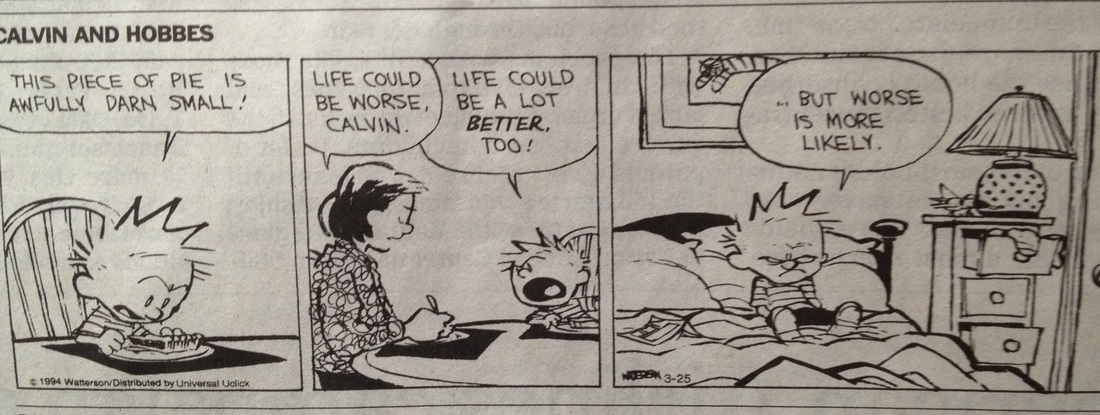


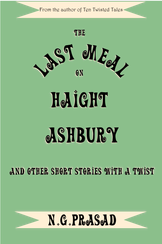
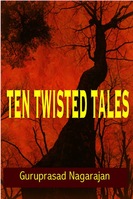
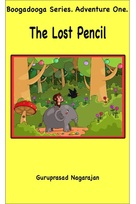
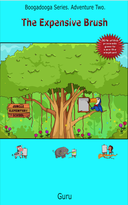

 RSS Feed
RSS Feed




















